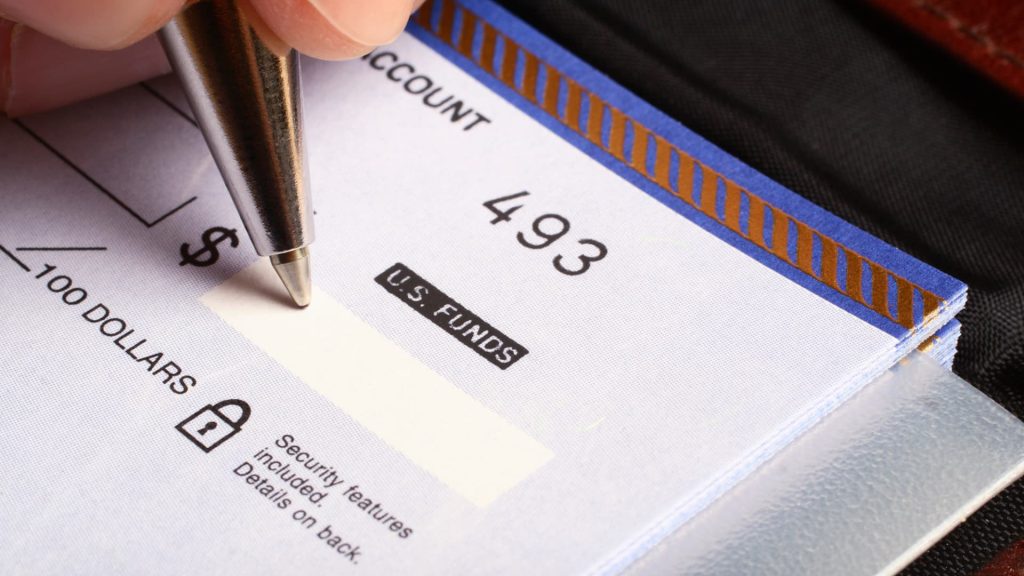Checks are printed at the U.S. Treasury Philadelphia Finance Center in Philadelphia, Pennsylvania.
Dennis Brack | Bloomberg | Getty Images
Paper checks were already dying a slow death.
President Donald Trump on March 25 signed an executive order mandating that all federal departments and agencies end their use of paper checks and switch to electronic payments by Sept. 30.
The U.S. Treasury now has about six months to phase out the paper checks it uses for various purposes, including tax refunds and the roughly 456,000 Social Security checks that are mailed monthly.
The executive order will “modernize how the government handles money, switching from old-fashioned paper-based payments to fast, secure electronic payments,” the administration said in a fact sheet on the order.
“Paper-based payments, such as checks and money orders, impose unnecessary costs, delays, and risks of fraud, lost payments, theft, and inefficiencies,” the White House said.
Under the order, all government departments and agencies will have to issue disbursements via electronic transfer methods, like direct deposit, debit or credit card payments, digital wallets and real-time transfers.
Consumers will have until then to set up an online bank account or some form of digital payment option, with limited exceptions for those who do not have access to banking services or electronic payment systems.
More from Personal Finance:
Social Security may see ‘interruption of benefits’ due to DOGE
Americans are suffering from ‘sticker shock’ — how to adjust
1 in 5 Americans are ‘doom spending’ — how that can backfire
Banking groups applauded the move.
“We welcome President Trump’s executive order mandating that the federal government cease issuing paper checks for all disbursements, including government benefits and tax refunds,” Rob Nichols, president and CEO of the American Bankers Association said in a statement. “Despite a continued decline in business and consumer use of checks, check fraud has continued to rise.”
Check fraud, mail theft and identity scams have exploded in recent years, according to Haywood Talcove, CEO of LexisNexis Risk Solutions’ government group. A 2024 report from the U.S. Government Accountability Office estimated that the federal government could lose between $233 billion and $521 billion a year to fraud.
“Checks aren’t safe anymore,” Talcove said. “It’s where the criminal groups are feasting.”
As part of the executive order, payments made to the federal government — such as fees, fines, loans and tax refunds — must also be made electronically.
With significant advancements in security — thanks to authentication, monitoring and data encryption — retailers’ and consumers’ shift to contactless and digital payment methods will only continue to grow, accelerating the move toward a “check zero” world, according to Scott Anchin, vice president of operational risk and payments policy for the Independent Community Bankers of America.
However, there are still certain groups that rely on paper checks, including some of the nation’s most vulnerable populations such as social security beneficiaries and those who receive rental assistance, or Temporary Assistance for Needy Families.
Check writers generally skew older and are likely at the margins of the banking community, according to Anchin. Americans over the age of 55 were most likely to write checks every month, the survey from GoBankingRates found.
But these groups are also most at risk of being targeted by scammers, Talcove said. “The elderly are significantly disadvantaged by the antiquated systems and you have to get them into digital payments.”
The death of checks
Although checks, as we know them today, first originated in the 11th century, they didn’t become mainstream until the early 20th century following the Federal Reserve Act of 1913, according to a historical survey by the Federal Reserve Bank of Atlanta.
But back then, “everyday people didn’t have checking accounts, that was for rich people,” Stephen Quinn, professor of economics at Texas Christian University and co-author of the Atlanta Fed’s report, previously told CNBC. “It wasn’t until after World War II that checking accounts were a common thing.”
Postwar prosperity greatly expanded the use of checking accounts to middle-class households, making checks the most widely used noncash payment method in the U.S., according to the Atlanta Fed.
Personal checks continued to gain steam until the mid-1990s, when credit and debit cards largely took over. Since 2000, check-writing has plummeted by nearly 75%, according to the U.S. Federal Reserve Board of Governors.
Despite the rapid decline, “a form of payment with a thousand-year history is unlikely to vanish overnight,” the Atlanta Fed report said.
And yet, today’s young adults are increasingly eschewing the traditional banking and credit infrastructure altogether in favor of peer-to-peer payment apps.
Quinn said his students rely almost exclusively on digital wallet payments such as Apple Pay, Venmo and Zelle — hardly anyone carries cash, and it’s likely that few even know how to write a check.
Mobile payment apps have become de facto bank accounts even though, unlike banks or credit unions, these financial services are not FDIC-insured.
Still, there remains a place for personal checks, Quinn said.
“The paper check might linger where it began, at the high end — for large one-off payments,” he said, such as charitable donations or real estate transactions. “In this way, checks might hold on for some time.”

